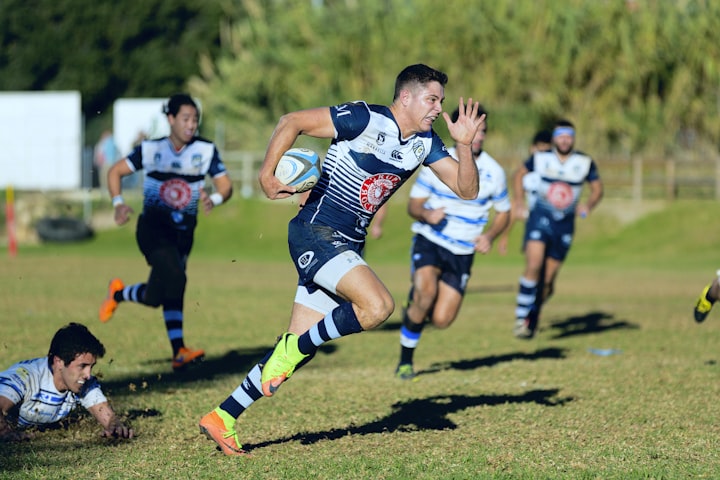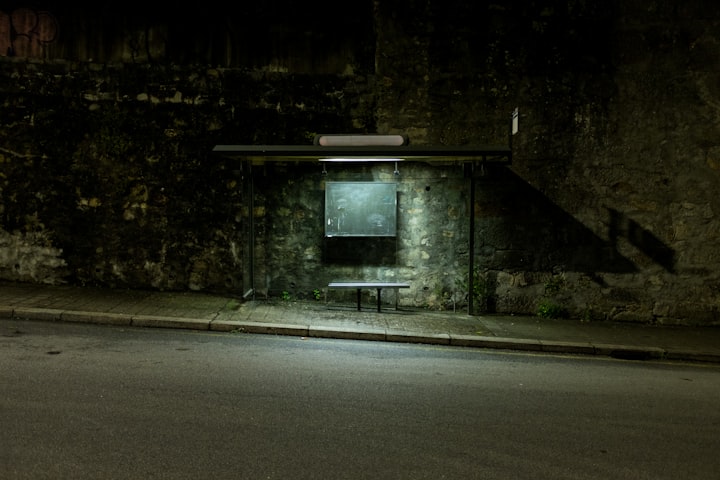Gay Men Enjoy ‘Masculine’ Hobbies Too.
Theatre vs. Rugby: Coming out to a team
As things begin to open up here in the UK, I am trying to make an effort to shake off my hermit-ism by picking up some hobbies and joining some clubs. The idea is to try and meet some new people and get out into the world a bit more. You know, normal human being stuff.
Unfortunately, for queer people, moving into any new circle of people forces us to make a very important and potentially problematic decision.
To come out or not?
And if so, when?
While thinking about what hobbies I wanted to pick up, I realised the gravity of this decision very much depends on what kind of environment you are going in to. Some groups will make the situation more tense than others will.
The fact that some hobbies and pastimes are more queer-friendly than others is objectively ridiculous and is indicative of much deeper systematic inequality. However, for once, I’m not here to try and tear down the overarching system (we’ll come back to that another time). I want to look at things at the ground level.
Let's look at an example.
All the world's a stage
I have been involved in theatre and the arts for almost a decade. From amateur dramatics, to running a professional production company, and pretty much everything in between, live performance has been a huge part of my life, even before I came out.
Theatre has long been understood to be a queer industry. Even at the genesis of gay liberation, when our forbearers fought against the wholesale legal oppression of queer people, live performance art, along with fashion, were areas of the professional world understood to have considerable queer components.
This wasn’t openly talked about, of course. Conversations would instead be draped in a mille-feuille of euphemism and metaphor. However, the idea that theatre and the arts are more tolerant has nonetheless persisted to the present day.
I have never been overly concerned about coming out in artistic environments. Sure, there are always some nerves and you can never be sure that everyone is going to be on board and liberal but, in those kinds of groups, the chances are fairly high that people will be tolerant, at the very least.
So, the arts are ok. Great, groundbreaking stuff there, Sean.
So what about sports?
Playing the field
One of the things I am looking into is rugby. I haven't even gone to a training session yet and I am already nervous about the possibility of having to come out to a team.
Sports are so often billed as being the absolute pinnacle of masculinity. The pitch is where ‘men should be men’ and the toughest guy is the one to look up to. At a professional level, fans live vicariously through their sporting heroes, cheering them on and becoming deeply emotionally invested in their performance and, often, in their very character. If those heroes then turn out to be something that their fans thought they were not, like queer, vitriol often ensues.
Sports, especially aggressive sports like rugby, are imbued with stereotypical gender roles. To some extent, the game itself is a product of those roles. Failing to fit in with those predetermined characteristics, therefore, has the potential to be very problematic.
So, what should a queer person do when getting involved in such an environment?
I sent an email last night enquiring about how I would go about joining my local club. I considered mentioning my sexuality straight away just to get it over with. That way, at least, I couldn't be accused of lying to people or hiding something from teammates later down the line. They would have some warning and it wouldn't need to be a shock to anyone.
I didn’t mention it, though.
Because why should I have to warn them? Being queer doesn't make me a danger to these people, something they have to be given time to prepare for. And why on earth would I want to divulge such a personal part of my identity to a random stranger over email?
The fact that I even considered doing that is what made me write this article.
Maybe we can have both
Last year, television reporter Eammon Ashton-Atkinson released the documentary ‘Steelers: the World’s First Gay Rugby Club’ to great acclaim. The film follows the Kings Cross Steelers, a London based queer rugby club that was the first of its kind in the world. Now, there are 60 similar clubs around the globe.
The documentary is fantastic and I highly recommend you go and watch it. The topics of masculinity and homophobia are tackled well (no pun intended) and it’s heartwarming to see how a safe space has been created in what could otherwise be a very difficult sport for queer people.
However, the fact that there needs to be such clubs is still a cause for concern. Celebration of our identities is fantastic and I would have no issue if LGBTQ+ clubs were created just for the purpose of kinship and pride, but often that's not the case. Instead, clubs like the Steelers are often formed out of necessity, and that is a problem.
Rugby, as a sport, is actually quite a tolerant and respectful game. Though it might be violent and there is no doubt an element of masculine stereotypes, what experiences I have had with rugby clubs have always been good. Mutual support, respect for all, and flawless good conduct have always been the tenets of the game, at least in my experience.
However, I've never had to come out to a team. And even despite what I know about the positives of the sport, I’m still absolutely terrified.
So the question is, when is the best time to come out?
We all know that coming out is something that you have to do over and over again as you go through life, and sports clubs aren’t the only places where that process may be more daunting than it might otherwise be. There are plenty of workplaces that have the potential to be equally as terrifying.
This is usually the point in the article where I tell you what I think and try to give advice to my readers about how to navigate this particular situation.
I can't do that, this time.
The truth is that I have no idea when the best time to come out to a new crowd is or what the best way to do it may be. When I asked questions in this article, they weren't rhetorical. I don't know the answer.
As I have been writing this piece, I received a response to my email inquiring about club membership. I now have times and dates where I can go and start my journey back into rugby. I probably will go ahead at some point, in which case I may have to find out the answers to these questions by personal trial and error… what could possibly go wrong…?
To be honest, I am lucky enough to live in a liberal city in a tolerant country, so the chances of coming up against any ardent, vocal homophobes are slim. But I can’t shake the irritation I feel at how nervous the idea of joining a ‘masculine’ hobby is making me. Why are we not able to be as comfortable on the pitch as we are on the stage? Why has society taught us that we are suited to one and not the other?
I have always said that queer identities are something to be celebrated, that we should have pride in who we are.
So, if that's the case, here’s a question for you.
Why am I so scared?
About the Creator
Sean Bennett
Writer, producer, editor and all-round curious so and so. Writing about politics, being queer, and anything else that springs to mind! (He/Him) Get in touch at - [email protected]







Comments
There are no comments for this story
Be the first to respond and start the conversation.